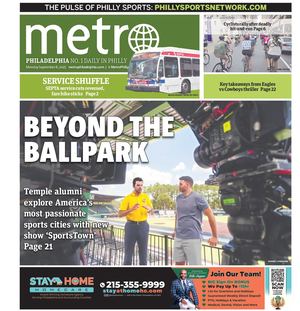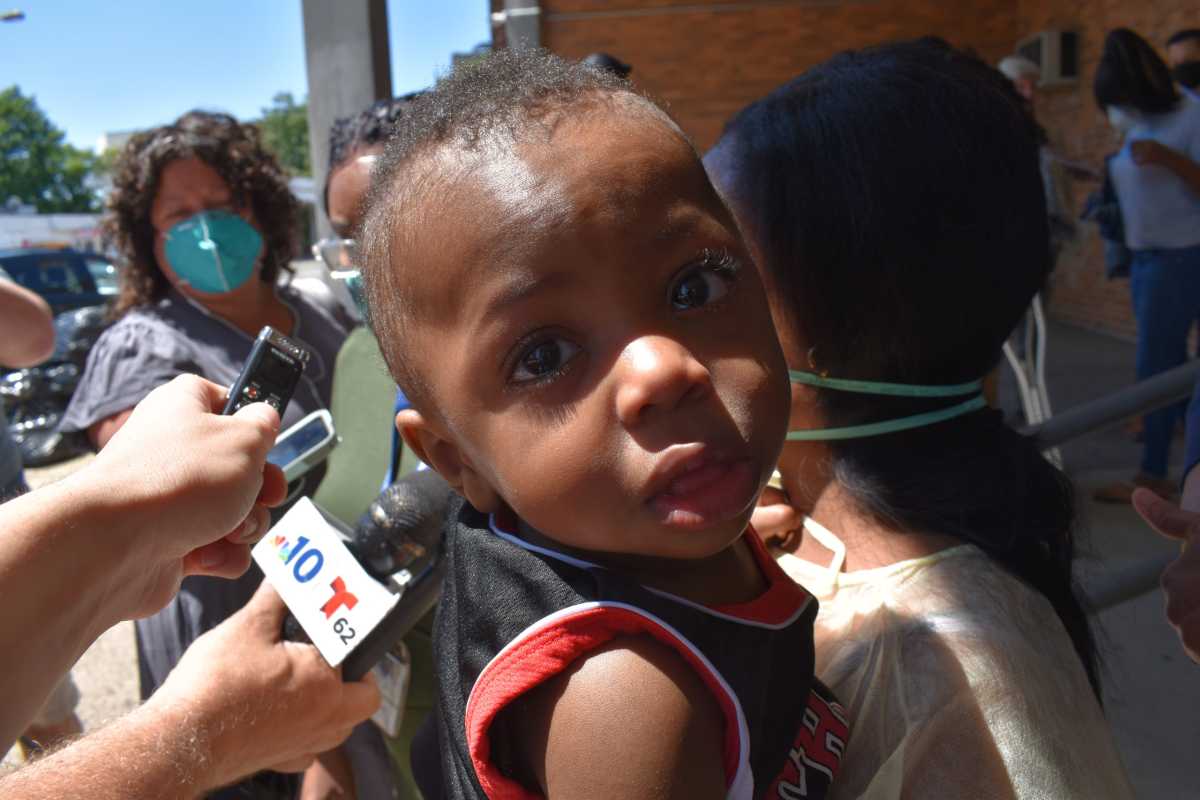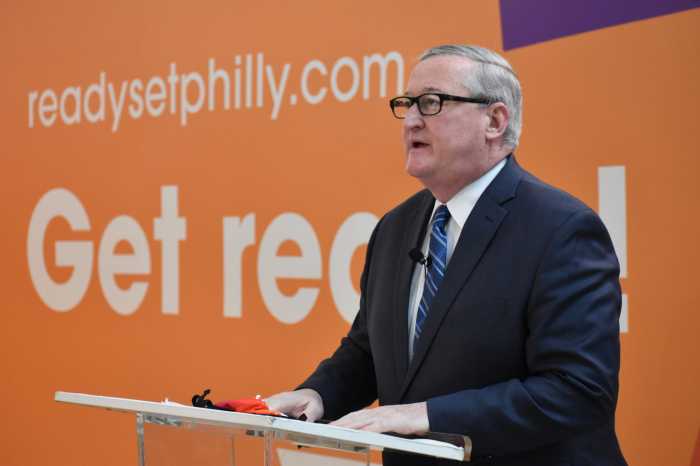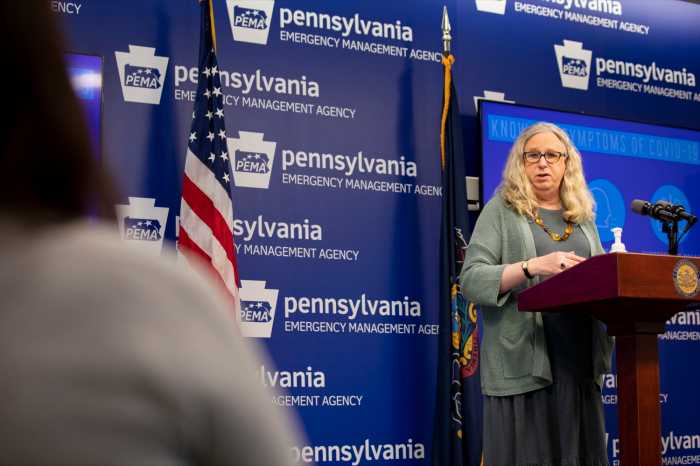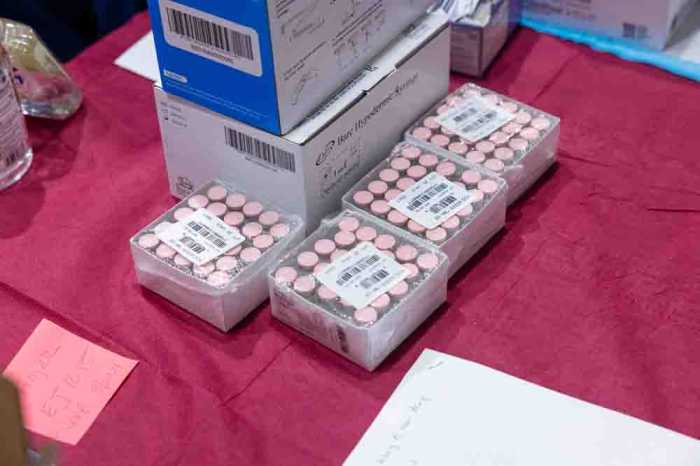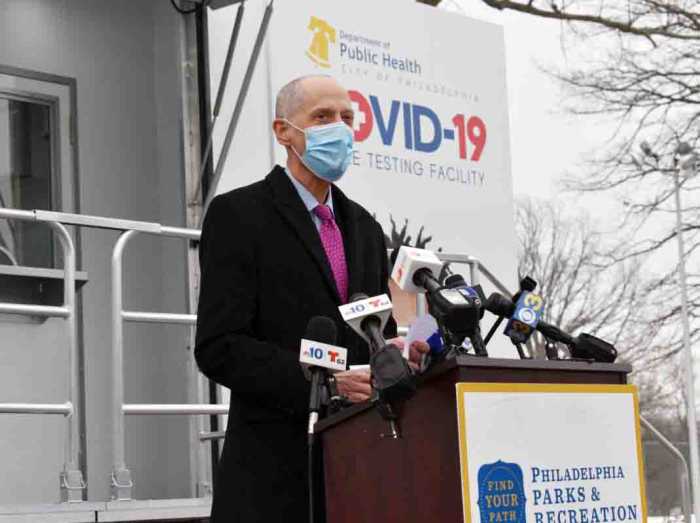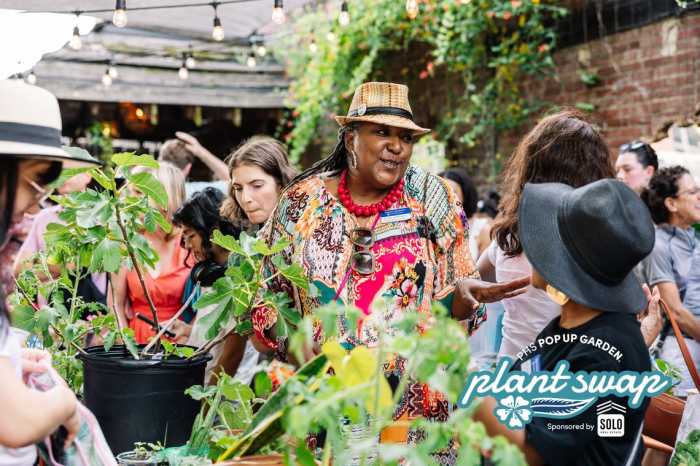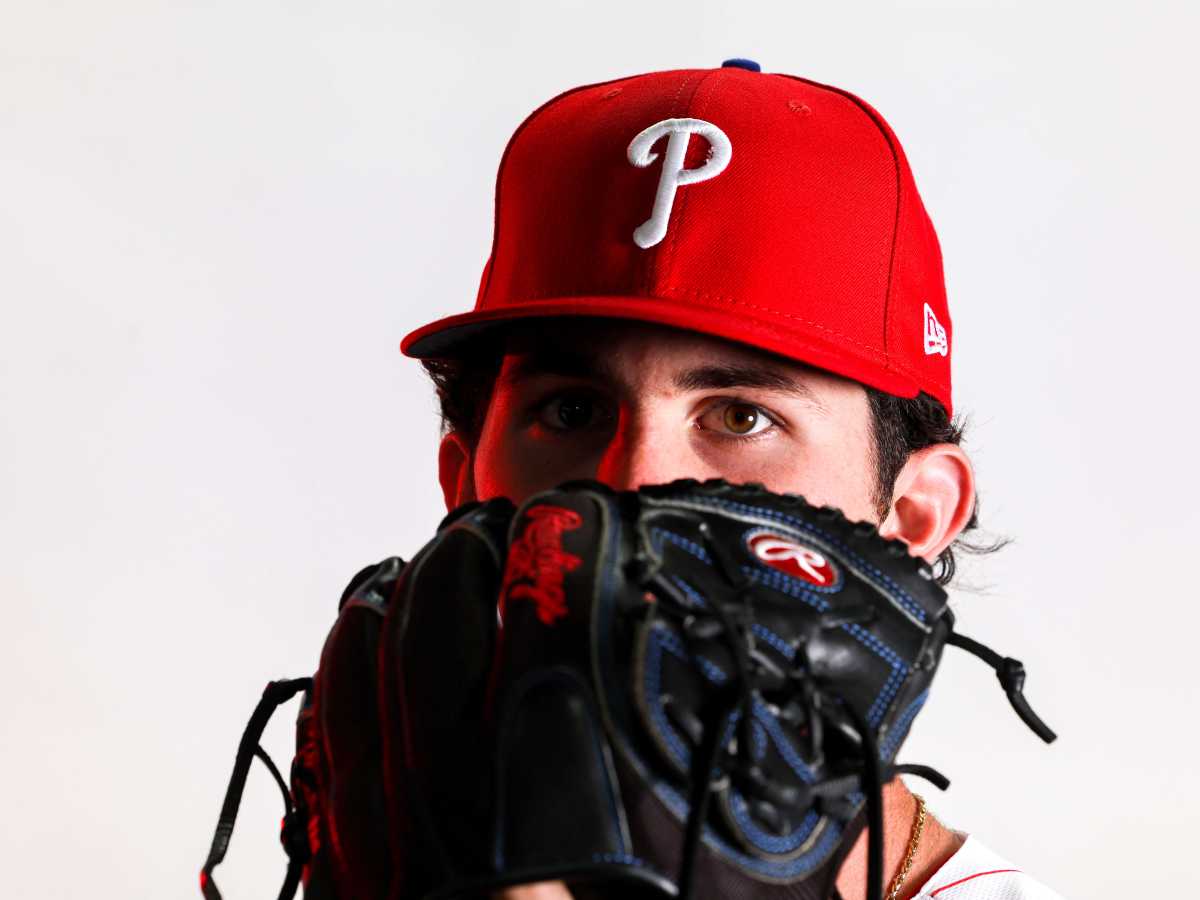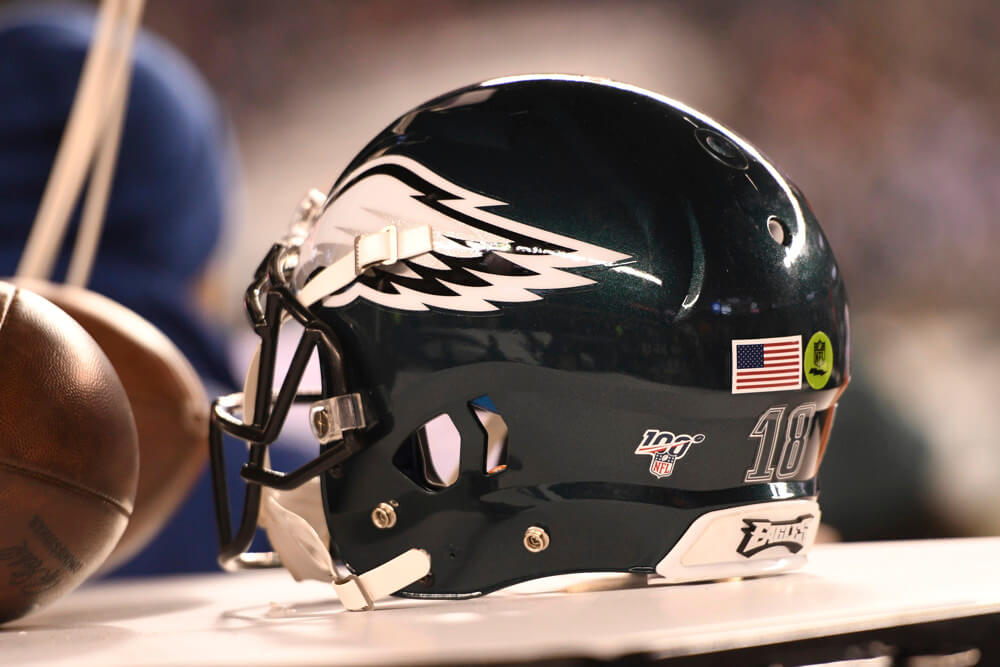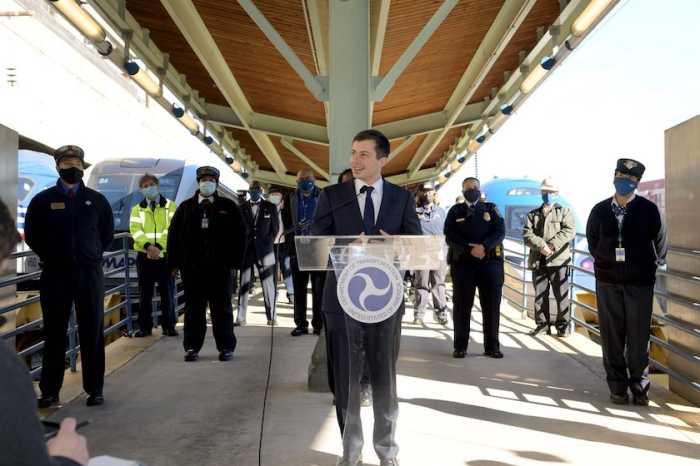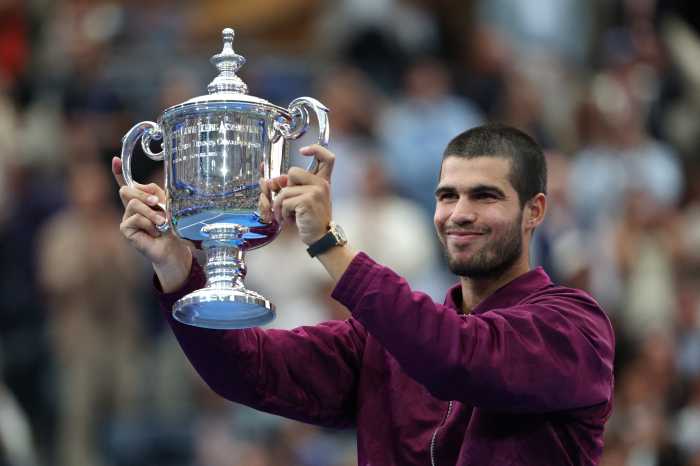Getting her 1-year-old son vaccinated against the coronavirus was not a difficult decision, Michael Moisette told a gaggle of reporters outside a city-run health clinic in Germantown.
“Anything can happen for a baby who doesn’t have the vaccine, and I think it’s safer for children to get vaccinated,” Moisette, a Haitian immigrant, said through a Creole interpreter.
Children under the age of 5 began getting vaccinated in Philadelphia last week, after federal authorities approved Pfizer-BioNTech and Moderna shots for anyone over 6 months old on June 18.
City officials pre-ordered 6,500 doses for the under-5 population and have since requested another 5,700, said James Garrow, a spokesman for the Philadelphia Department of Public Health.
The total does not include vaccines sent directly from the federal government to national pharmacies like Rite-Aid and Walgreens, he added.
Experts are not expecting a huge rush. Only about 31% of children between the ages of 5 and 12 in Philadelphia are fully vaccinated, compared to 77% of those 12 and older, according to health department data.
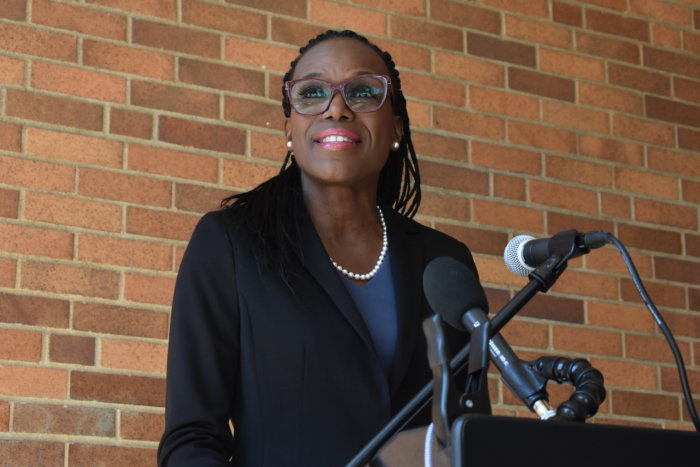
Even so, Dr. Ala Stanford, at a news conference Wednesday morning, characterized the move to vaccinate the youngest children as a “historic milestone” in the country’s fight against the virus.
Stanford founded the Philadelphia-based Black Doctors COVID-19 Consortium to provide outreach and healthcare to Black and brown communities early in the pandemic, and, in April, she was appointed by President Joe Biden to serve as regional director for the U.S. Department of Health and Human Services.
“We know that the majority of children are healthy, but that is not enough to protect them,” Stanford said. “Half of the children that we lost to COVID were kids without any pre-existing medical conditions.”
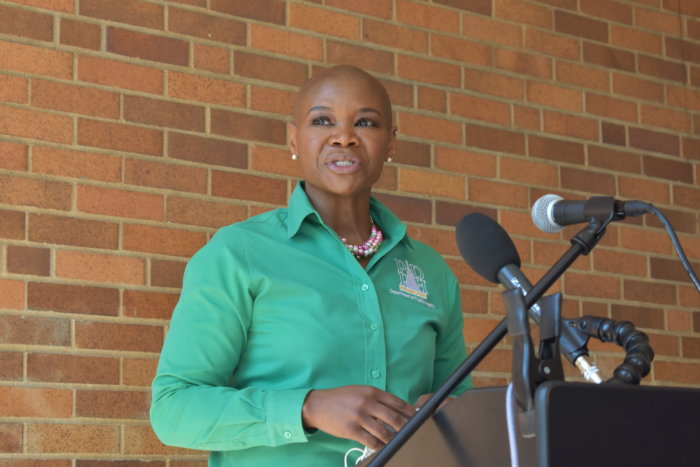
“And we also know that long COVID is real, with people having COVID fog and fatigue and shortness of breath,” she later added.
Parents should still get their children vaccinated even if their babies and toddlers have already been infected with the virus, since the shot confers an extra layer of protection, said Stanford, whose region spans from Pennsylvania to Virginia.
Moderna’s pediatric vaccine is a two-dose series, with a third shot for children who are immunocompromised. For Pfizer, there are three jabs for kids under the age of 5.
Side effects for Moderna include fatigue, headache, muscle ache, chills, nausea/vomiting and joint stiffness, while the Pfizer shots can lead to irritability, decreased appetite, fever and pain, tenderness, redness and swelling at the injection site, according to the U.S. Food and Drug Administration.
Both vaccines are a fraction of the dose given to adults.
Pharmacies are authorized to inoculate children 3 and up; those younger must see a pediatrician, according to federal guidelines.
Some pediatrician’s offices are offering the shots, which are also being distributed at health centers, hospitals and other clinics.
Walk-ins for babies 6 months and older are available at city-run health centers 3, 5, 6 and 10 on weekdays between 8 a.m. and 1 p.m. Established patients can make an appointment by calling 215-685-2933.
COVID-19 cases and infection rates have been declining across the city since May. Philadelphia is currently averaging 229 new cases a day, with a positive test rate of 10.5%, according to the health department.
